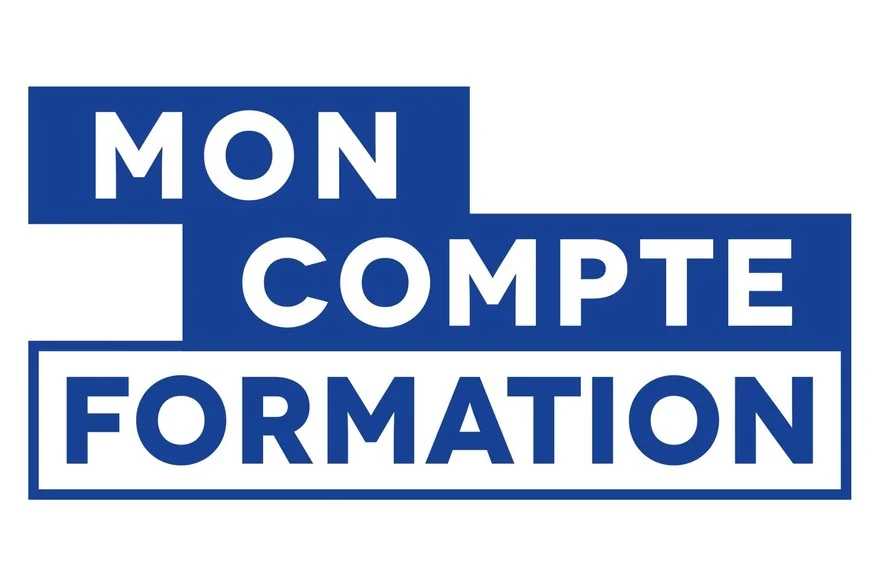The first conditional exercices
The first conditional exercices des
The first conditional exercices
En anglais, le « First Conditional » est une structure grammaticale couramment utilisée pour parler de situations futures réelles ou possibles et de leurs conséquences probables. C’est une forme de conditionnel qui exprime des événements qui sont susceptibles de se produire si certaines conditions sont remplies.
Structure de Base :
Le « First Conditional » suit la structure :
« If » + [présent simple], « will » + [base verbale].
- Condition (« If » clause) : Utilise le présent simple pour introduire une situation ou un événement futur possible.
- Conséquence (« Main » clause) : Utilise « will » suivi de la base verbale pour exprimer l’effet probable ou la réaction à cette situation.
Exemples :
If it rains tomorrow, we will stay at home.
- (Si il pleut demain, nous resterons à la maison.)
If she studies hard, she will pass the exam.
- (Si elle étudie sérieusement, elle réussira l’examen.)
Utilisation du First Conditional
Le « First Conditional » est particulièrement utile pour :
Prédictions Basées sur des Conditions Réelles : Exprime des prévisions ou des attentes concernant l’avenir qui sont basées sur des conditions présentes ou futures.
- If the weather is nice, we will go to the beach. (Si le temps est beau, nous irons à la plage.)
Offres et Promesses : Souvent utilisé pour faire des promesses ou des offres qui dépendent d’une certaine condition.
- If you help me, I will help you in return. (Si tu m’aides, je t’aiderai en retour.)
Mises en Garde et Conseils : Peut servir à donner des avertissements ou des conseils en relation avec des actions futures.
- If you don’t save your work, you will lose it. (Si tu ne sauvegardes pas ton travail, tu le perdras.)
Voici quelques exercices de chaque niveau:
The first conditional exercices : Niveau facile
If it rains tomorrow, we will cancel the picnic.
🌧️ The weather forecast doesn’t look very promising. If it rains tomorrow, the ground will be too wet, and it won’t be comfortable to sit outside. In that case, we will cancel the picnic and maybe plan something indoors instead.She will be happy if she gets the job.
😊 She has been preparing for this interview for weeks, and getting this job means a lot to her. If she gets the job, she will be absolutely thrilled because it’s her dream position, and it will be a major step forward in her career.If they do not arrive soon, we will leave without them.
⏳ We’ve been waiting for them for over an hour now, and we’re starting to lose patience. If they do not arrive soon, we will have no choice but to leave without them, as we don’t want to be late for the event.You will feel better if you take this medicine.
🤒 You have been coughing all day, and you look really exhausted. If you take this medicine, you will feel much better because it will help reduce your symptoms and allow you to rest properly.If he finishes his work early, he will go to the party.
🎉 He has a lot of tasks to complete before the deadline, but he really wants to join his friends at the party. If he finishes his work early, he will go and have a great time without worrying about unfinished tasks.We will miss the train if we do not hurry.
🚆 The train is scheduled to leave in ten minutes, and we still have to go through the ticket check. If we do not hurry, we will miss the train, and the next one won’t be for another hour!If you call me, I will come to help you.
📞 I know you might struggle with the project, and I don’t want you to feel overwhelmed. If you call me, I will come right away to help you and make sure you get everything done correctly.They will not succeed if they do not try hard.
💪 Achieving success requires effort and determination. If they do not try hard, they will not succeed, because nothing worthwhile comes without dedication and persistence.If you tell me the truth, I will forgive you.
🤔 I know something is wrong, and I just need honesty from you. If you tell me the truth, I will forgive you because what matters most to me is trust and sincerity.She will buy a new car if she saves enough money.
🚗 She has been dreaming about getting her own car for a long time. If she saves enough money, she will finally be able to buy a new car and enjoy the freedom of driving wherever she wants.
The first conditional exercices : Niveau moyen
Exercise 1: Fill in the blanks with the first conditional
Complete the following sentences using the first conditional. Remember, the first conditional is used for situations that are real and possible in the future.
If it rains tomorrow, we will stay indoors. (Use the first conditional)
If you study hard, you will pass the exam. (Use the first conditional)
If she arrives late, she will miss the bus. (Use the first conditional)
If they call us, we will answer the phone. (Use the first conditional)
If we leave now, we will arrive on time. (Use the first conditional)
Exercise 2: Choose the correct option for the first conditional
Read each sentence and choose the correct option to complete the first conditional.
If you (study / studied) more, you (will / would) improve your English skills. (Choose the correct answer for the first conditional)
If it (rains / will rain) tomorrow, we (will / would) go to the park. (Use the first conditional)
If I (finish / will finish) my homework, I (can / will) watch a movie. (Apply the first conditional correctly)
Exercise 3: Create sentences using the first conditional
Write sentences using the first conditional for the following situations. Remember, in the first conditional, you use « If + present simple, will + base verb. »
If it’s sunny tomorrow, I will go to the beach.
If you arrive early, we will have breakfast together.
If they finish their homework, they will join us for the movie.
If you don’t hurry, you will miss the train.
If she gets the job, she will move to a new city.
Exercise 4: Correct the mistakes in the first conditional sentences
There are mistakes in the following sentences. Correct them using the first conditional structure.
If it will rain, we will stay indoors. (First conditional mistake)
If he would study, he will pass the exam. (Fix the first conditional)
If they eat too much, they would feel sick. (Correct using the first conditional)
The first conditional exercices des Niveau difficile
If I win the competition, I will celebrate with my friends. 🏆
I have worked so hard for this moment, and winning would mean a lot to me. If I win the competition, I will celebrate with my friends by organizing a big party or going out to a nice restaurant. This situation clearly demonstrates the first conditional, where the condition (winning) directly influences the future action (celebration). It will be a well-deserved reward for all the effort I have put into my training and preparation. In this case, using the first conditional allows me to express a real possibility in the future that depends on the outcome of the competition.
If she doesn’t finish the project on time, she will lose her job. ⏳
She has been under a lot of pressure lately, trying to complete this important project before the deadline. If she doesn’t finish the project on time, she will lose her job because her boss has already warned her that meeting deadlines is crucial for the company’s success. This is a classic example of the first conditional, where the result of her failure to meet the deadline is a severe consequence. She must stay focused and work efficiently to avoid this unfortunate outcome. Using the first conditional in this situation highlights the cause-and-effect relationship between not finishing the project and the loss of her job.
If they don’t take action now, the consequences will be severe. ⚠️
The situation is getting worse every day, and the longer they wait, the harder it will be to fix. If they don’t take action now, the consequences will be severe, affecting not only their business but also the people who depend on them. A proactive approach is necessary to prevent a disaster. This is a textbook case of the first conditional, where delaying action now leads to severe consequences in the future. By applying the first conditional, we emphasize that immediate action is crucial to avoid a disastrous future.
If he doesn’t listen to his coach, he won’t improve his performance. 🏋️♂️
His coach has years of experience and knows exactly what he needs to do to get better. If he doesn’t listen to his coach, he won’t improve his performance and will continue making the same mistakes. This scenario demonstrates the first conditional, where his failure to listen will directly impact his future progress. He must trust the guidance he receives and put in the effort if he wants to reach his full potential. The first conditional is used here to show how immediate actions (listening to the coach) lead to future results (improved performance or lack thereof).
If it snows tomorrow, we will have to cancel our plans. ❄️
We were really looking forward to our trip, but the weather forecast predicts heavy snowfall. If it snows tomorrow, we will have to cancel our plans because traveling in such conditions could be dangerous. This situation illustrates the first conditional, where the condition of snowfall tomorrow directly leads to the action of canceling our plans. Instead, we might stay inside, watch movies, and enjoy a warm cup of hot chocolate. Here, the first conditional is used to express the real possibility of the weather affecting our plans in the future.
The First Conditional exercices
Apprendre c'est bien mais mettre en pratique ce que vous avez appris c'est encore mieux. Alors testez vos connaissances grâce au Quiz ci-dessous.

Le Troisième Conditionnel
Entrainez vous au troisème conditionnel en faisant des exercices en anglais

Le Futur Parfait
Faites des exercices sur le futur parfait pour améliorer votre conjugaison en anglais

L'Imparfait
Entrainez vous et améliorer vous a l’imparfait en faisant des exercices en anglais

Le Passé Composé
En faisant des exercices sur le passé composé vous allez pouvoir enrichir votre vocabulaire en anglais

Les Différentes utilisations de 'yet'
Les différentes utilisations de ce verbe sont très utile en anglais. Entrainez vous en faisant des exercices en anglais

Les Différences entre "since" et "for"
« For » et « since », quelles différences ? Ces deux mots signifient « depuis ». Faites cet exercice pour connaitre la distinction des deux mots en anglais.

Les Temps du Passé en Anglais
Comment et quand utiliser les temps du passé en anglais ? Cet exercice vous entraine sur les temps du passé en anglais
The first conditional exercices
MY Project
Réalisez votre projet en anglais!
✔️Nous vous aidons à développer vos compétences en anglais, grâce à un procédé confectionné sur mesure autour de votre projet : MY PROJECT.
✔️Notre méthodologie se construit sur des ateliers ludiques, basés sur de la compréhension orale et écrite, des sketchs ainsi que des débats.
✔️Notre objectif ? Vous faire gagner en aisance en anglais

UN BILAN D'ANGLAIS GRATUIT,
CA VOUS DIT ?
Nos coachs diplômés vous invitent à l’un de nos ateliers gratuits afin d’élaborer une stratégie d’apprentissage complètement personnalisée !
Prêt à avoir un meilleur niveau d’anglais ? Let’s go !
The first conditional exercices
The first conditional exercices






